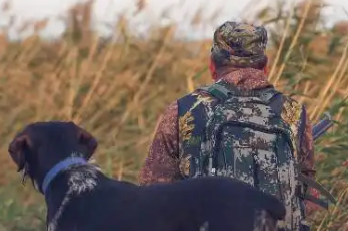
Hunting, fishing, fur trapping, eating beef, and riding broncs and bulls may not be everybody’s cup of tea, but those activities are deeply woven into the cultural fabric of rural America.
However, efforts are underway in the state of Oregon to completely outlaw the cultural fabric of rural America.
Petition 13 would make the killing of any animal legal only under the circumstances of self-defense. That would legally prohibit hunting and fishing for food, fur trapping, harvesting livestock, and even pest control. The petition would also classify catch and release fishing and activities like rodeos as animal abuse.
The idea is so out of touch with reality that it seems like satire (or an episode of Portlandia), but it’s a very real legislative initiative.
Given the scientific and economic data that supports those activities, an attempt to make them all illegal would seem crazy if it didn’t have a legitimate chance at potentially happening.
In the case of hunting, fishing and fur trapping, they’re also critical components of managing modern ecosystems and funding fish and wildlife conservation efforts.
In 2020 alone, the state sold more than $28 million worth of hunting licenses and $26 million worth of fishing licenses. Excise taxes on the sale of firearms, ammunition, archery equipment, and fishing gear also raised more than $22 million for fish and wildlife conservation efforts in the state in 2020.
Historically, those funding mechanisms have raised more than $2 billion for the same cause in the state. Without those activities the Oregon Department of Fish and Wildlife would go bankrupt and be unable to manage the state’s resources.
According to Oregon Fresh, cattle ranching alone in Oregon is a $900 million industry which makes beef the state’s top agricultural commodity. Defining cattle ranching as animal abuse would absolutely cripple the states economy and leave untold numbers of people hungry.
Rodeo culture goes hand in hand with cattle ranching, and events in Oregon like the St. Paul Rodeo frequently draw more than 50,000 attendees which proves the entertainment and cultural value of cowboy sports in the state.
Under state law, ballot initiatives like Petition 13 need only 112,000 valid signatures by July of 2022 to be eligible for the November 2022 election cycle. The city of Portland is a hub for animal rights extremists, and with a population of about 650,000 there is a fairly decent chance enough of them sign the petition to ensure that the measure winds up on the ballot.
If it weren’t for Portland, such an absurd idea would never be realistic.
Outside of Portland, the state of Oregon is mostly rural and filled with people who have a close connection to agriculture, logging, ranching, hunting, and fishing. It will be up to them to stop the attempt at banning the very activities that entire rural communities and ways of life throughout the state are founded on.
Almost 950,000 people bought a hunting or fishing license in Oregon in 2020 according to the Congressional Sportsmen’s Foundation. Millions of people in the state presumably ate farm raised meat last year too, so for their ability to go hunting or fishing to be threatened by just over 100,000 people in Portland is absolutely nuts.
If Petition 13 does wind up on the ballot, it will be up to the states more than 4.2 million residents at large to push back on these issues.
Petition 13 has deceptively been titled “Abuse, Neglect, and Assault Exemption Modification and Improvement Act.” The name alone though, is enough to fool people into signing onto the petition in good faith without realizing the lunacy they’re signing up to support. That’s a major reason why highlighting the absurd facts about Petition 13 is so important.
Amy Patrick, outreach coordinator for the Oregon Hunters Association sees the hypocrisy of what the petition is attempting to do.
“Under this initiative, it would be illegal to put a deer in the freezer, catch fish, or raise animals to offset a family’s grocery bill.
While it prevents Oregonians from securing their own naturally raised or harvested food, it does not prohibit grocery stores from carrying animal proteins, meaning those items would be imported from states that do not have such outrageous regulations, effectively creating even more distance between Oregon families and their food.”
*story by Whiskey Riff


